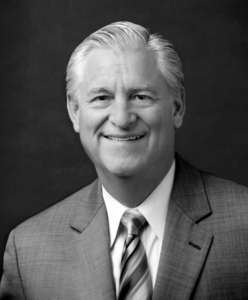By David K. Bernard
The purpose of the United Pentecostal Church International is to carry the whole gospel to the whole world by the whole church …” (UPCI Constitution, Article I). We are an international church with almost 45,000 churches and preaching points in 203 nations and territories. Our goal is to establish a self-governing, self-supporting, self-propagating national church in each country. As national churches are established, they become part of the Global Council of the UPCI.
The purpose of the Global Council is fivefold:
1. To strengthen our unity through closer fellowship worldwide
2. To uphold the International Articles of Faith and standards of righteousness
3. To unite our missionary endeavor worldwide
4. To develop plans for worldwide evangelism
5. To promote the World Network of Prayer
The Global Council is currently com-posed of 121 member organizations. Some nations have missionaries or churches but have not yet developed a national organization; and some nations are combined into one organization, such as in the Leeward Islands. The Global Council meets every five years, and each member church sends delegates. Between these meetings is a smaller meeting, the Executive Global Council. It is composed of delegates from the seven regions of the world: Africa, Asia, Central America and Caribbean, Europe and Middle East, North America, Pacific, and South America. The six regional directors outside North America participate in both meetings.
Because the UPCI was founded in the United States and Canada, the UPCI of North America is the mother church. The other member organizations began directly or indirectly from missions efforts by North Americans, and the North American church still provides most of the funding for global missions. In recognition of this unique role, under current policy the chair of the Global Council is the general superintendent elected by the US and Canada. The director of Global Missions serves as chair in his absence and thus is called the co-chair. To involve leadership from around the world, in 2010 the Global Council created the position of secretary. It is an elected position, and it rotates among the seven regions.
For its governance, the Global Council has adopted the International Articles of Faith and the Global Council Policy. To affiliate with the UPCI Global Council, an organization must adopt the International Articles of Faith. These are the same as the Articles of Faith of the North American church, including the “Fundamental Doctrine” and “Holiness,” except they exclude a few articles that address specific legal and cultural circumstances in the US and Canada. (In some cases, those statements could raise issues with governments in other countries.) Recently, the Global Council added an article entitled “The Atonement” to explain that the salvation experience of Acts 2:38 comes by grace through faith based on the atoning death, burial, and resurrection of Jesus Christ. The North American church ad-opted it as well.
The UPCI Constitution governs the church in the US and Canada and the missionaries sent from these countries. Each of the other national churches is organized under the laws of its country, has its own constitution, and has its own legal name, such as the United Pentecostal Church of France. Affiliation with the Global Council means that a national church is part of the international fellowship of the UPCI. For example, the UPC of France is not under the legal structure of the UPCI Constitution, but it is part of the UPCI Global Council.
The Global Council has adopted the following policies to coordinate international ministry and evangelism:
* Equality of all individual members as part of one UPCI, regardless of race, gender, culture, language, or nationality.
* Regional missionary program, which endorses missionaries who originate outside the US and Canada. We currently have forty-six regional missionaries-more than the forty missionaries the UPCI had at its formation in 1945. To date, over $600,000 has been raised outside the US and Canada to support these missionaries.
* International transfer of ministerial credentials. Ministers can be transferred upon recommendation from the sending country and compliance with the bylaws of the receiving country.
* Ministers working or residing in another country. If ministers of an affiliated organization move to another country for several years, indefinitely, or permanently, within six months they should apply for ministerial credentials with the organization of that country. If they wish to start a new work, they must follow the policy of the national church in that country.
* International ministry recommendation. Protocols have been adopted to implement ministerial ethics and facilitate cooperation. Ministers who receive an invitation to minister outside their home country should notify the leader of the inviting country. Ministers who wish to extend a ministerial invitation to someone outside their home country should notify their own leader (in North America, their own district superintendent and the regional director of the guest). The purpose is to ensure good communication and success of the proposed visits.
The Global Council also facilitates the Global Association of Theological Schools. GATS provides a standard template for Bible colleges and enables the transfer of credits among them. We are also working on plans to allow the recognition of credits among GATS schools, Urshan College and Graduate School of Theology, and Purpose Institute.
The Executive Global Council recently met in March 2013 in Dubai, United Arab Emirates. The next Global Council meeting is scheduled for November 2015 in Colombo, Sri Lanka. (Z)
David K. Bernard is the general superintendent of the United Pentecostal Church International.



